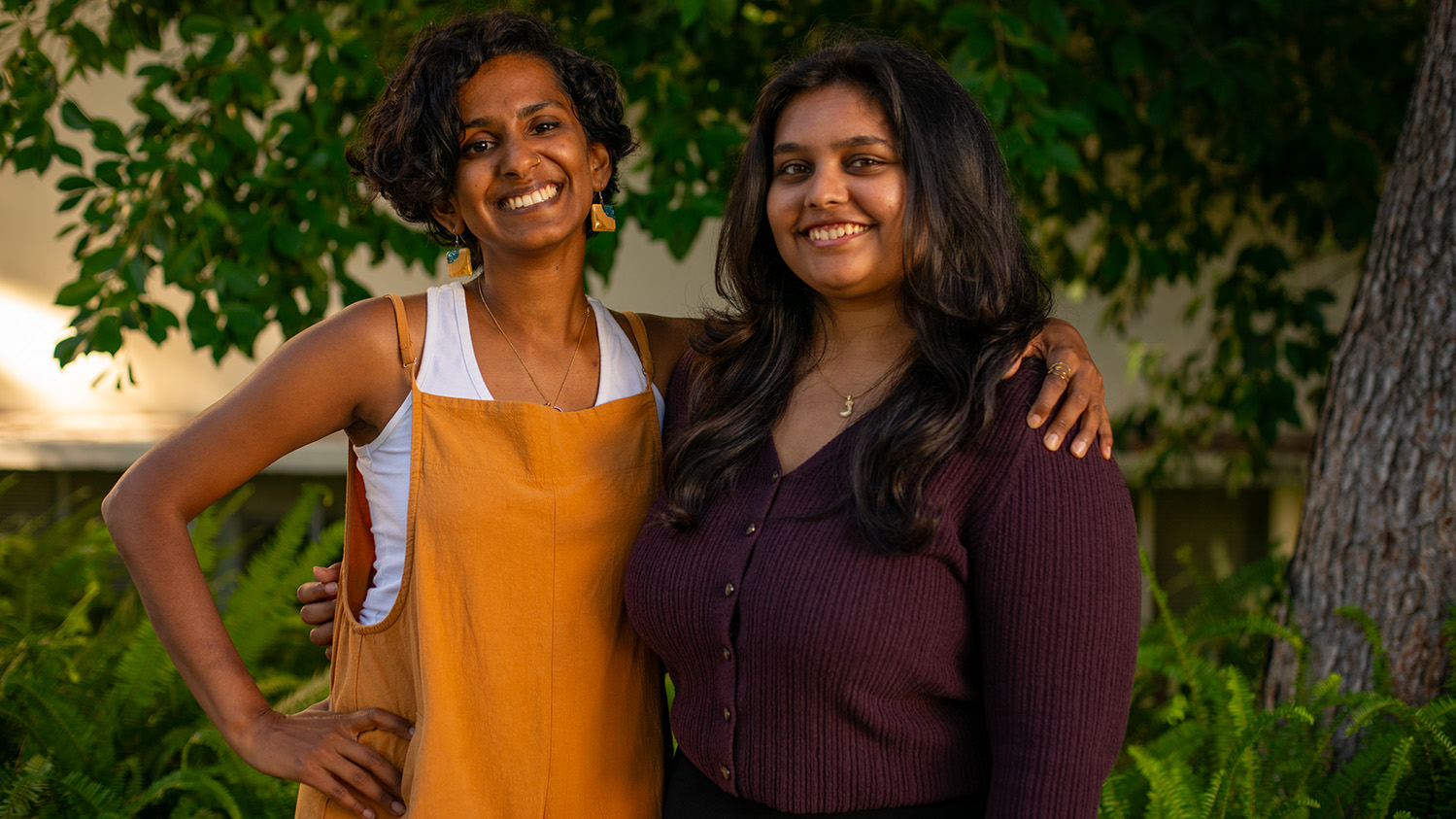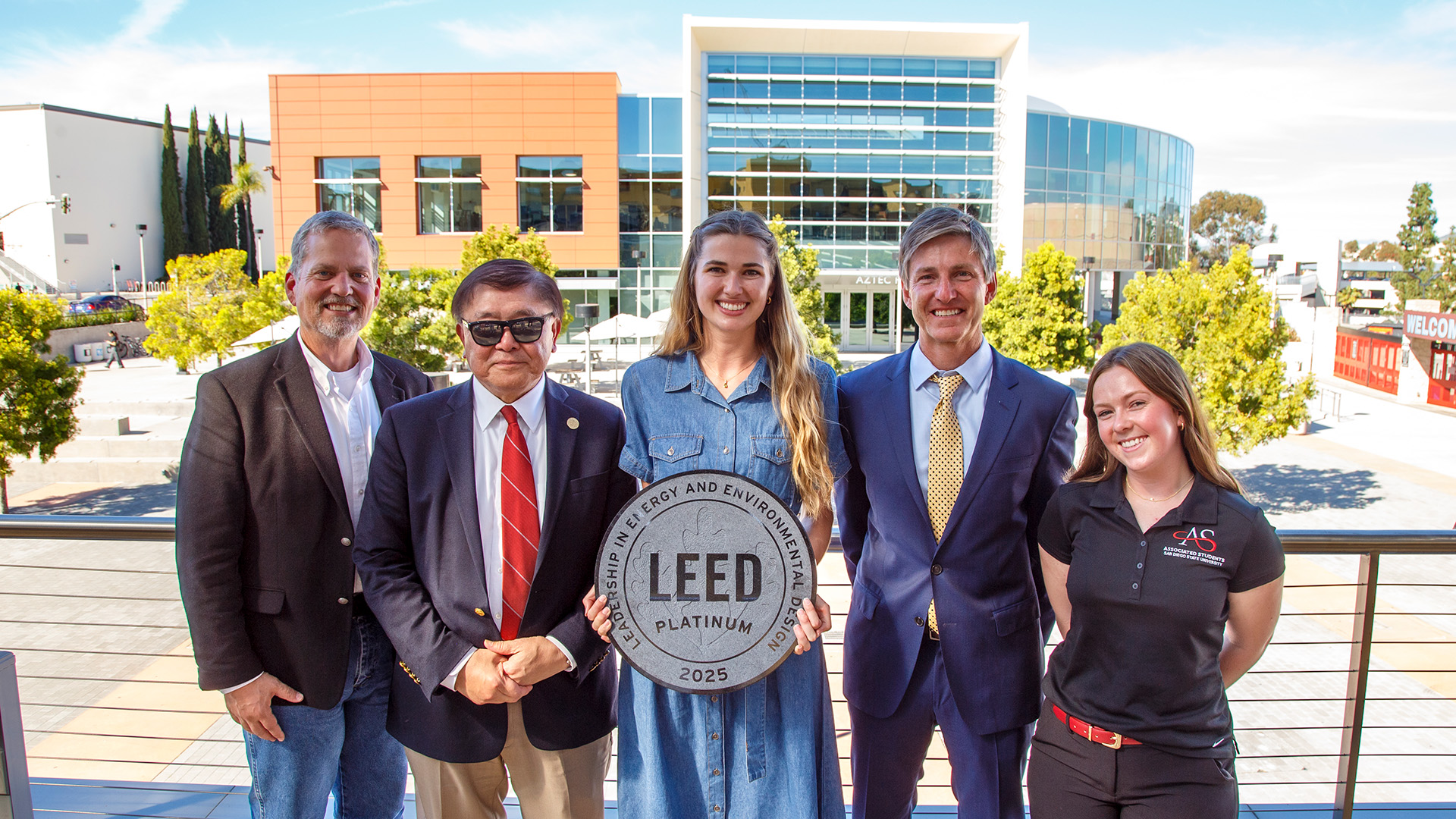Future therapy professionals offer wellness support for the students of today
Trainees at the Center for Community Counseling and Engagement offer free support sessions to SDSU students and their families.

Sesen Negash strongly believes a student’s college journey does not happen in isolation. Stress from difficult familial relationships can weaken their academic performance and social growth.
“Students don't just come to college and suddenly put a pause on everyone from their past,” said Negash, a licensed marriage and family therapist and professor in San Diego State University’s Department of Counseling and School Psychology.
“They bring that to their work, they bring that to their classroom and they bring that to their relationships that they're forming in the college space. Their well-being is closely connected to their family relationships.”
A new initiative from SDSU’s Center for Community Counseling and Engagement is aiming to help students strengthen those relationships so they can thrive.
The center has launched free telehealth group therapy sessions to students and their families. Graduate student trainees in SDSU’s Marriage and Family Therapy (MFT) program will lead the sessions, offering support building stronger lines of communication and resolving conflicts related to independence, school transitions, intergenerational differences and acculturation gaps.
Negash called her MFT students “hungry and eager” to offer support. That includes Manasvi Sridhar, who started the 2½-year program in May, embarking on a new professional path after spending 10 years as a management consultant in the corporate sector.
“The interpersonal relationships in your life can be the best thing that can happen to you, the most healing thing, or they could be the worst thing,” Sridhar said. “As humans, we need to be in community, whether we like it or not — that’s how we survive. And there's going to be bumps along the way.
“This is a resource that enables you to work that out, offered by people who are specifically trained in this area.”
The first six sessions are offered free of charge and Negash said an in-person option will be added this spring at the Dede Alpert Center for Community Engagement in City Heights. Services are also offered in several languages, including English, Spanish, Spanglish, Arabic, Korean, Mandarin, Somali, Hindi, Marathi and Tamil.
The big idea is to break down barriers to care, especially for individuals from minoritized communities. That’s important in a field that, in the past, often pathologized and stigmatized individuals based on cultural difference.
Sridhar remembers feeling the legacy of that stigma quite clearly. As an undergraduate student in New York more than a decade ago, the very act of going to see a therapist was enough to cause anxiety of its own.
“I was deeply ashamed and hoped that no one would see me in the elevator or that I wouldn't run into anyone I knew,” they said. “I think the attitude around therapy is very different right now. I wish I had had access to something like this when I was in school.”
SDSU’s MFT program is grounded in anti-colonial, post-structural ideas that prepares practitioners to center social and cultural contexts. As such, the idea behind the therapy sessions is to make students and their family members feel included and affirmed in their differences, not judged or blamed.
“We want to help meet families where they are,” Negash said. “That means trying to listen without judgment, trying to understand how these families came to form the understandings that they have, and the dynamics that they have, and help strengthen those connections.
“It's to support not just the student, but the family. Oftentimes, when you support the family, it supports the student too.”
Additional information on telehealth for students and families can be found online or call 619-594-4918 to begin the intake process.



